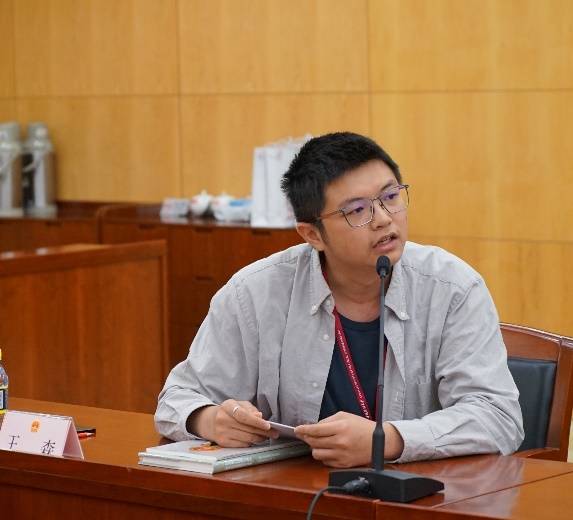On July 19, the closing ceremony of the 2024 Summer Internship Program for Hong Kong and Macao Legal Students in Mainland Courts was held in Guangzhou, marking the successful conclusion of the five-week internship activity. The Leaders from the Hong Kong and Macao Work Office of the Communist Party of China Central Committee, Committee for the Basic Law of Hong Kong and Macau of the Standing Committee of the National People's Congress, the Supreme People’s Court of the People's Republic of China, the Ministry of Education of the People's Republic of China, the Liaison Office of the Central People's Government in the Hong Kong Special Administrative Region, and the Liaison Office of the Central People's Government in the Macao Special Administrative Region attended the ceremony.
Associate Professor Peng Yunpeng from M.U.S.T. Faculty of Law attended the closing ceremony on behalf of the faculty. He witnessed Lei Hang Chi, Xie Fok U, Ho Sio Leong, Fong Ka Cheng, Fok Ut Teng, Zhang Junwei, and Wang Sen successfully completing the program and receiving their certificates.
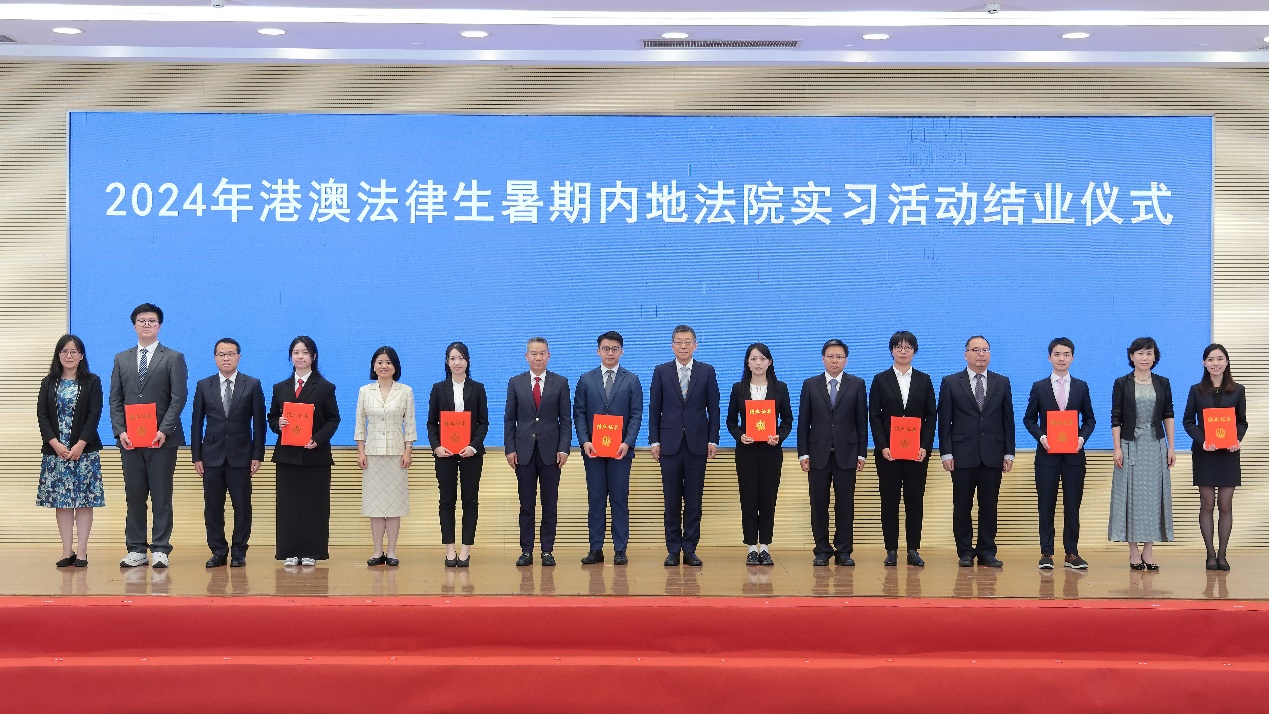
Figure I
Certificate of Completion Awarding Ceremony
The 2024 Summer Internship Program for Hong Kong and Macao Legal Students in Mainland Courts was approved by the Hong Kong and Macao Work Office of the Communist Party of China Central Committee and coordinated by the Supreme People’s Court and the Ministry of Education. The activity was held from June 17 to July 19. During the program, students first attended a week of training at China University of Political Science and Law, and then began internships in relevant courts in Shanghai, Guangzhou, Nanjing, Hangzhou, and Shenzhen. The organizers aimed to provide Hong Kong and Macao students with a comprehensive understanding of the mainland’s economic and social development, foster an appreciation for the historical and cultural heritage, deepen their knowledge of the mainland's legal system, gain practical legal work experience, and support Hong Kong and Macao legal students in contributing to the legal career development of the Guangdong-Hong Kong-Macao Greater Bay Area in the future.
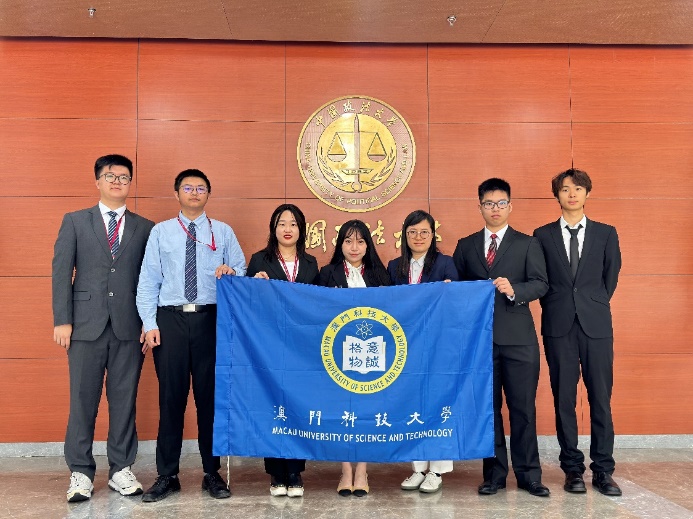
Figure II
M.U.S.T. Faculty of Law students attended a training session at China University of Political Science and Law.
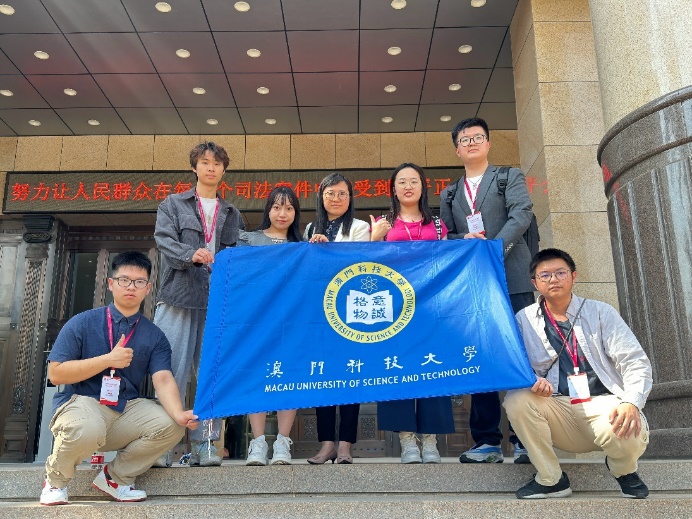
Figure III
M.U.S.T. Faculty of Law students visited the Supreme People’s Court of the People’s Republic of China.
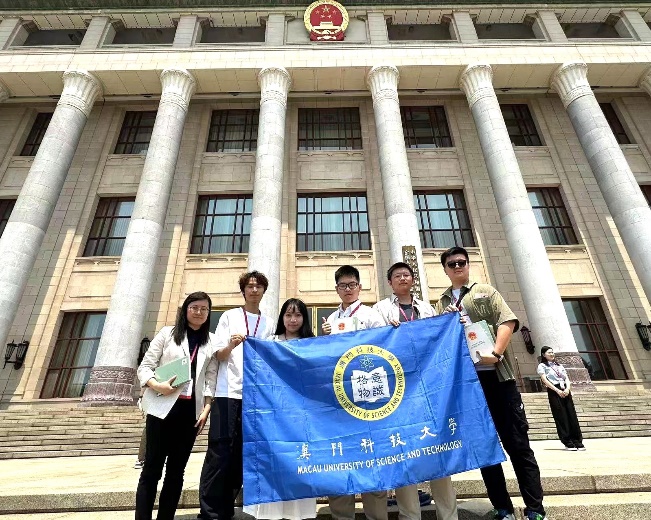
Figure IV
M.U.S.T. Faculty of Law students visited the Standing Committee of the National People’s Congress.
This event offers a comprehensive itinerary, balancing theory and practice. It includes professional course learning, on-site teaching, visits and exchanges, court internships, and more. Students not only broaden their horizons and build friendships and mentorships but also enhance their professional skills. Guided by teaching judges, students personally experienced the entire process of handling cases in mainland courts through case studies, business seminars, and court trial observations. This allows them to gain a deeper understanding of the mainland legal system, court judicial practices, and local customs. Students from M.U.S.T. Faculty of Law expressed their gratitude to the faculty and sponsors for providing valuable opportunities and meticulous preparations. They appreciated the chance to explore the country's landscapes, gain insights into the national legal system and mainland legal practices, and strengthen their belief in “One Country, Two Systems” and their affection for the Motherland and Macau. They aspire to contribute to Macao’s legal community through their hard work and dedication.
Impressions on the activity of the students from M.U.S.T. Faculty of Law:
Lei Hang Chi (Student of the Master’s Program in Financial Crime and Regulation)
During the five-week exchange activities and court internship, I was fortunate to gain an in-depth understanding of the operations of the People’s Court. In the first week of exchange activities, I enhanced my comprehension of my country’s legal system by studying courses such as the Civil Code, Criminal Law, and Recovery of Cultural Relics at the University of Political Science and Law. I also engaged in discussions with leaders of the Supreme People’s Court and the Hong Kong and Macao Work Office of the CPC Central Committee. Throughout the subsequent four-week internship, I worked with a team of judges handling foreign-related cases at Shenzhen Qianhai Cooperation Zone People’s Court. There, I provided legal opinions to the judges from the perspective of Macau laws and regulations, and observed court hearings. I also personally experienced the case trial process of the People’s Court. Interacting with judges and judge assistants made me realize their unwavering commitment to serving the people. The knowledge of the teaching judges and the care of the judge assistants made me feel welcomed in a new city. This internship provided me with a profound understanding of the importance of upholding the rule of law to serve the people. I witnessed how the People’s Court practices the rule of law and strives to ensure that every judicial case reflects fairness and justice. I am grateful for the opportunity to participate in this event, as it has enriched my life with valuable experiences.
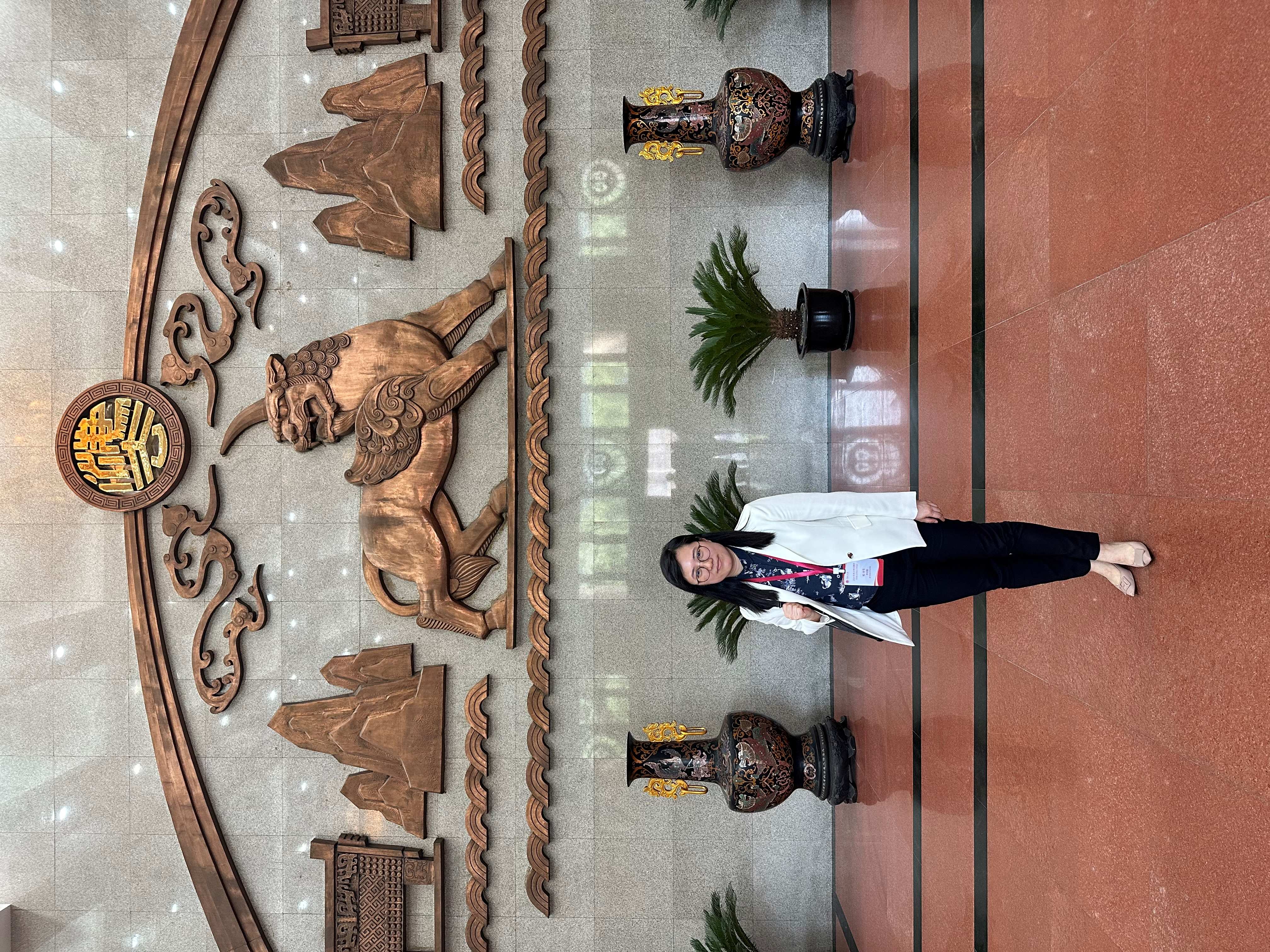
Ho Sio Leong (Student of the Bachelor Program of Laws)
During the internship, I gained a deeper understanding of the operation and legal system of the Nanjing Drum Tower Court through a combination of theoretical study and court trial observation under the guidance of Mr. Li Tingzhang. While handling the case, I noticed some typical issues. For example, according to the provisions of the Supreme People’s Court, if the defendant obtains a loan for re-lending, the court should determine that the private lending contract is invalid. This not only reflects the strict enforcement of the law but also upholds the legality and fairness of lending. Additionally, I observed that the legal principles in Macau are akin to those in the Chinese Mainland, which regulate excessive annual interest rates to prevent individuals from making substantial profits. During case observations, I noted that in many instances, both parties generally lacked evidence and their attorneys were not adequately prepared, thereby increasing the court’s workload. Therefore, legal professional ethics are not solely the responsibility of legal professionals; individuals and companies involved in loans and borrowings should also enhance their legal awareness, maintain honesty and trustworthiness, and manage finances prudently to avoid legal disputes such as usury or predatory lending practices.
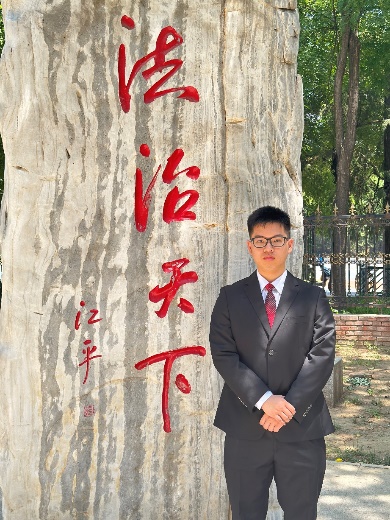
Xie Fok U (Student of the Bachelor Program of Laws)
I am very honored to have this internship opportunity. As a student from the Faculty of Law at Macau University of Science and Technology, I have extensively studied Xi Jinping’s thoughts on the rule of law and international law, civil law, criminal law, etc. during my time at China University of Political Science and Law. This experience has enhanced my understanding of legal knowledge and the legal variances between Chinese Mainland and Macau. Throughout my internship, I engaged in courses led by various professors, notably Associate Professor Zeng Wenke’s analysis of Chinese criminal law and Professor Zhu Zheng’s discussion on the Qi Yuling case. These sessions helped me grasp the moral dilemmas and societal impacts in legal practice. Professor Huo Zhengxin’s exploration of legal issues in the recovery of overseas cultural relics and Professor Fei’s detailed explanation of Chinese civil law broadened my legal perspectives. Moreover, during my internship at the People’s Court of Nanshan District, Shenzhen, I actively participated in civil case trials with Judge Pang Haiting and drafted judgments, which enhanced my professional skills. Through observing court hearings, I gained profound insights into the judge’s reasoning and decision-making process. Interacting with senior judges and colleagues also provided valuable learning experiences. Ultimately, the hands-on observation and learning activities during the internship deepened my understanding of legal practice and fueled my passion for a legal career. This experience not only honed my professional abilities but also bolstered my confidence in pursuing a legal career, which I consider a valuable asset in my life.
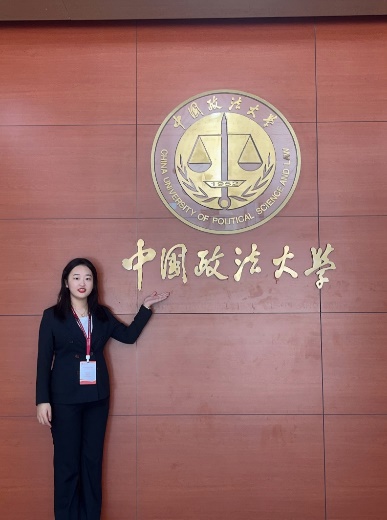
Zhang Junwei (Student of the Bachelor Program of Laws)
Before starting my internship at the Guangzhou Internet Court, my understanding of the court was primarily based on TV shows and books, portraying it as grand and serious. However, being immersed in this innovative judicial setting has significantly broadened my perspective. The modern and digital setting of the Guangzhou Internet Court starkly contrasts with traditional courts. Throughout my internship, I acquired skills in utilizing technology to enhance judicial efficiency, such as online case filing, electronic delivery, and virtual court hearings. These advancements make litigation more accessible for all parties involved and alleviate the workload of judges and clerks. Additionally, I had the opportunity to engage in real case trials and witness firsthand the benefits of technology, including video court hearings and intelligent voice recognition. These experiences deepened my comprehension of modern legal technology, revealing that the concept involves not only the digitization of court processes, but also an evolution in the traditional judicial framework. My responsibilities primarily revolved around cases concerning intellectual property rights, particularly the right of information network dissemination. While drafting judgments, I learned to meticulously analyze case evidence and craft rulings based on the defendant’s arguments and the plaintiff's rebuttals. Despite initial challenges, with the guidance of my colleagues, I gradually acclimated to the workflow and developed a clearer career trajectory. Overall, this internship provided me with a profound appreciation for the role of technology in the legal sphere and underscored the necessity for legal professionals to continuously adapt to the evolving legal landscape, resulting in significant personal growth.
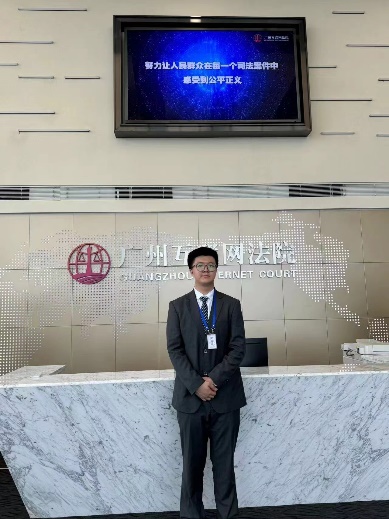
Fong Ka Cheng (Student of the Bachelor Program of Laws)
During this internship, I experienced three primary emotions. The first is “Considerate”. In the first week at the Shanghai No. 1 Intermediate People’s Court, we received a legal practice course from a senior judge. This was a very rare learning opportunity. At the same time, their daily care made me feel valued as a student, for which I am grateful. The second is “Happy”. When we first arrived in Shanghai, the students were not familiar with each other, but after a few weeks of getting along, everyone became friends and communicated, making the internship more meaningful. The last is “United”. In the moot court and debate competition, the students discussed and brainstormed together. I also challenged myself to win the honor of the best debater and achieved wonderful results. Throughout this time, we experienced the working mode of the court, sampled the court's food, and felt the vibrancy of Shanghai. I believe that everyone gained what they desired during this internship, and I express sincere gratitude to No. 1 Middle School for taking care of us.
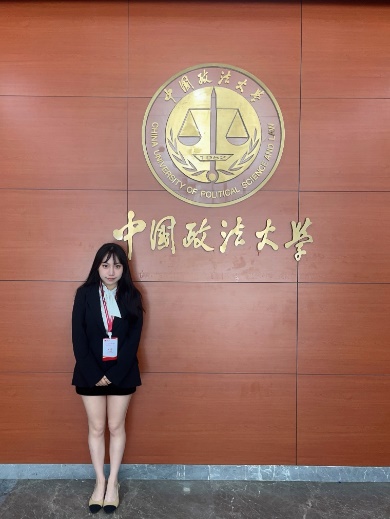
Fok Ut Teng (Student of the Bachelor Program of Laws)
This internship in Nanjing provided me with valuable experience and allowed me to experience the charm of this city, rich in history, culture, and modernity. I had the opportunity to interact with exceptional talents from various schools and receive warm guidance from leaders, which made my internship experience fulfilling. By engaging in practical work at mainland courts, I gained a new understanding of the court's operational processes, enhancing my legal professional abilities and practical skills. Particularly, when I observed several corporate dispute cases, I had my first close encounter with the mainland's judicial procedures. This experience deepened my understanding of the construction of the socialist rule of law with Chinese characteristics. Additionally, I acquired effective debating skills and improved my own debating abilities. Overall, this internship expanded my horizons, strengthened my passion and confidence in the legal field, laid a solid foundation for my future career development, and helped me clarify my career goals. Undoubtedly, this experience will remain the most unforgettable chapter in my life.
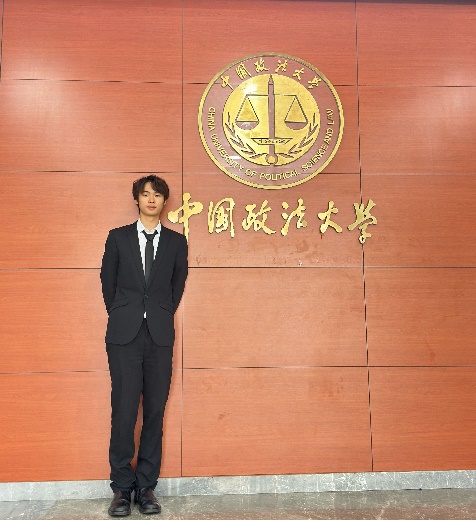
Wang Sen (Student of the Master Program of Laws)
I am very happy to participate in this internship activity for legal students from Hong Kong and Macao. I deeply appreciate the country’s care for our compatriots in Hong Kong and Macao. During my visit to Beijing, I had the opportunity to explore places such as the Great Hall of the People and the APCE conference venue. It was my first time visiting Beijing, and the experience was truly profound. My visiting exchange at China University of Political Science and Law enriched my legal research capabilities significantly. The professors patiently answered my questions, fostering legal exchanges between the Chinese Mainland and Macau. Interacting with local classmates also provided me with a deeper insight into Beijing’s customs. Following my trip to Beijing, I interned at the Guangzhou Internet Court for a month, where I drafted multiple case judgments. Under the guidance of a teaching judge, I enhanced my civil law practice skills and acquired knowledge of mainland civil law and civil procedure law. I came to understand that a judge’s responsibility extends beyond making judgments to include dispute resolution, emphasizing the social impact of judicial decisions. During my visit to the Supreme People’s Court, a judge discussed the mainland’s judicial reform and the promotion of the “Fengqiao Experience,” highlighting the roles of judges and people’s mediators. This mechanism is something Macao could learn from. This internship not only broadened my horizons but also enhanced my legal knowledge and provided me with a deeper understanding of the mainland of our motherland.
